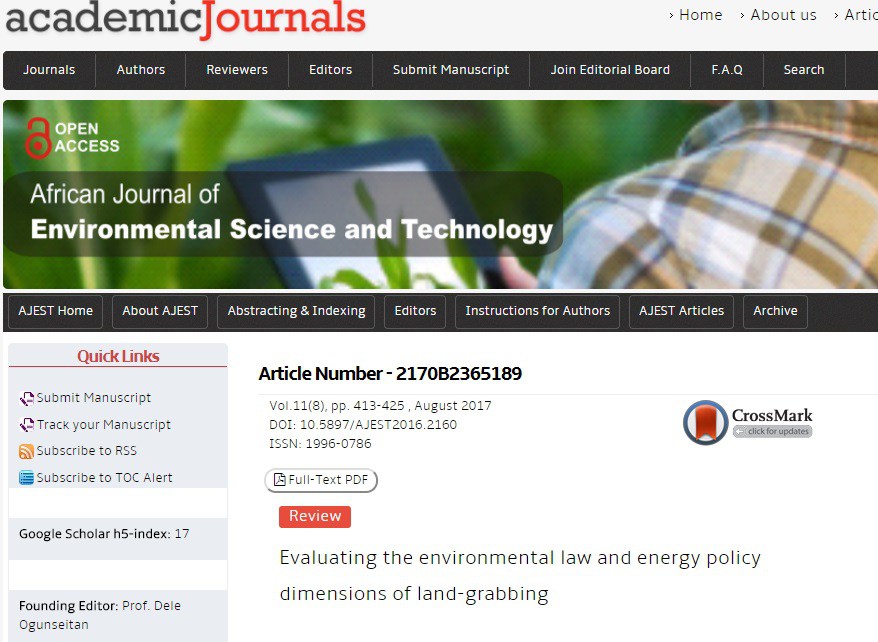Resource information
This article seeks to investigate whether concern for food security and investment liberalization are the principle drivers of land-grabbing in Africa. The investigation demonstrates that, in addition to food security concern, climate change and energy security considerations have been key catalysts arousing hunger for farmland, forests, and fisheries resources in Africa. In particular, certain provisions of the United Nations Framework Convention on Climate Change, the Convention on Biological Diversity, and Directive 2009/28/EC of the European Parliament have rendered tree planting, agro-biofuel cultivation, and forest conservation attractive investments in Tanzania and Uganda. This finding challenges the prevailing discourse that links land-grabbing, solely, to global demand for food and the liberalization of investment


